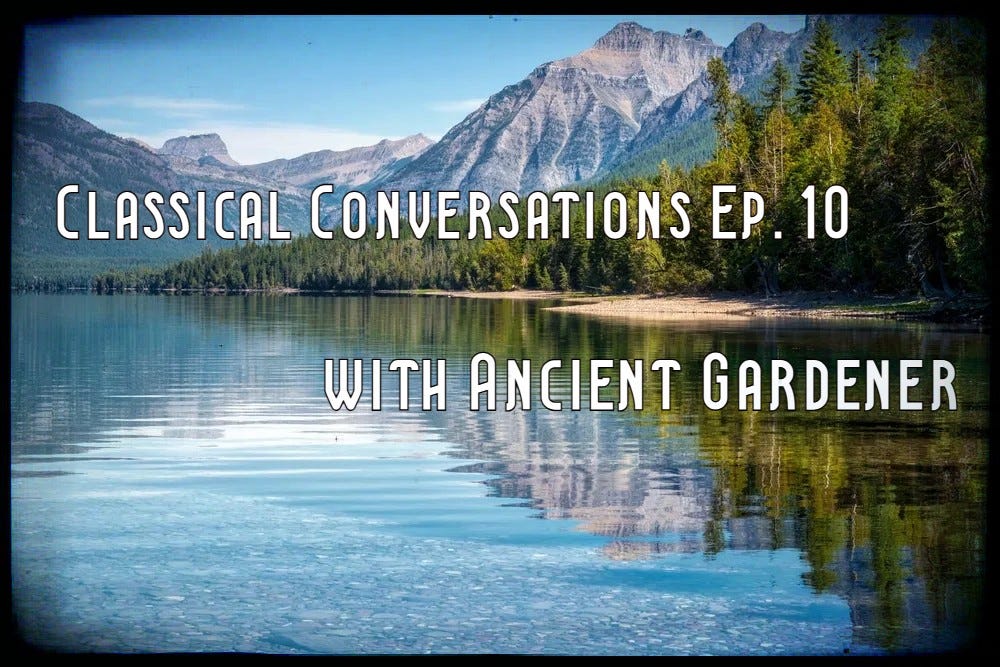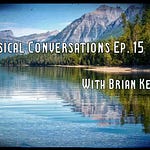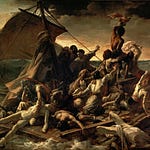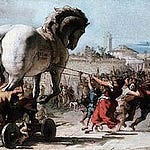Hello and welcome to Montana Classical College! Today I will be talking to Ancient Gardener. He is an X poster and I heard him on Lance Legion’s podcast when I was preparing for what was fun discussion with him, where Lance made the strongest case possible for why Agamemnon has a case to make for why he should be considered the best of the Achaeans. But I remember you saying some striking things about Neo-Platonists, Nietzsche, and Christianity and vitalism, so I thought that you were somebody that I could learn from and who would be able to assist MCC listeners in their own education. We had talked about doing an X space on the classical school and homeschool movements in the United States, but I started to think that this was a topic and Ancient Gardener’s thoughts on it were more well suited to the leisure of a recorded podcast.
Outline of the core questions:
1. For starters, could you please tell us a little bit yourself. Why is your name Ancient Gardener? Who are some of your favorite thinkers and why? And what some of your favorite problems or questions to think about?
2. One thing that got us talking was an essay my friend Phocaean wrote called “Right-Wing Thought and the Reemergence of Philosophy.” I’ll offer a short summary of the essay and then you can bring to light the points that you found most crucial or salient.
Men have rediscovered that philosophy is dangerous. The radical questioning of Socrates in our own mouths today re-opens access to uncomfortable truths that the dogmatists of today would like to muzzle. Phocaean turns our attention to Aristotle’s claim that equipment is necessary for virtue. We could that some version of this argument is in Cephalus’ mouth in book one of Plato’s Republic when he says that the greatest goods that come from his wealth are that he doesn’t have to cheat or lie and so by being just, he stands a better chance of doing well in the afterlife. Phocaean says that youthful rightwingers are wondering if the elder conservative guard is ultimately not virtuous because they have surrendered the equipment of our nations most prized institutions to the Left. Without the equipment or property or owned space of the university, of NGO’s, of newspapers, of Hollywood, etc, what can we say that the American Right has, to think of Cephalus again, allowed us and younger men than I, to inherit?
It offends egalitarian sensibilities to say that not everyone can be virtuous because they lack equipment, because they are spending their time acquiring it, while not educating themselves liberally in the meantime. Think of the harried college student who is working so much that they cannot attend class very often.
Equipment could mean being a landed aristocrat, having a good disposition or nature, acquiring a good education which might presuppose good teachers, etc, and it might be required to do virtuous things. There are things outside of our control that prevent us from being virtuous. Most humans don’t like this and there are few who can accept it gracefully. Men fail to realize that one’s own happiness is the limit of other men’s happiness.
The reason we hate to hear that not everything is possible, is because it implies that we are ourselves might be bad. We want to believe in Malcolm Gladwell’s arguments about training for 10,000 hours or whatever. Ancient, what does this summary strike you as right and what else did you take away from it?
3. The promise / peril of classical education today.
Some people say that the classical education movement can save the republic; is this true? We know what the result of education is not supposed to be—hating America while not knowing anything about it. What should education look like today?
4. An attempt at a whitepill? What is possible and good and on what scale can it be done?
Previous Classical Conversations:
Arthur Powell on his poetry chapbook Skirmishes in the Atrium, the poet’s relationship to technology, and timeless / timely poetry.
Kruptos on building a parallel polity, the enframing of thinking by technology, and the loss of virtue.
Nobody on the core differences between ancient and modern poets, poetry vs. philosophy, and possibilities for the contemporary poet.
Lance Legion on contemporary military officer education, Romans vs. Greeks, Agamemnon, Julius Caesar, and the relation between Christianity / Vitalism.
Jeremy Carl on Hungary, right wing environmentalism, immigration, and Christian nationalism.
Space Age Maximalist on engineers as aristocrats of the future, technological optimism, and how to merge scientific and humanistic thinking.
William Wheelwright on agriculture preceding culture, a vision for a new school, and Homer’s Iliad.
Phocaean Dionsyius on Aristocratical Christianity (our second conversation on this)
David Azerrad on the American founding, a diagnostic account of the contemporary situation, and thoughts about how to move forward.












